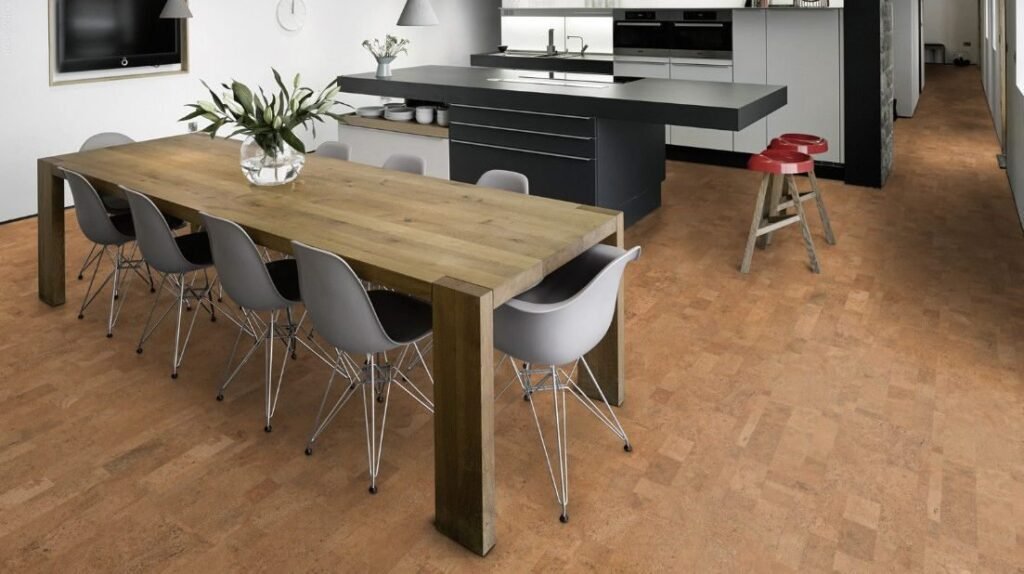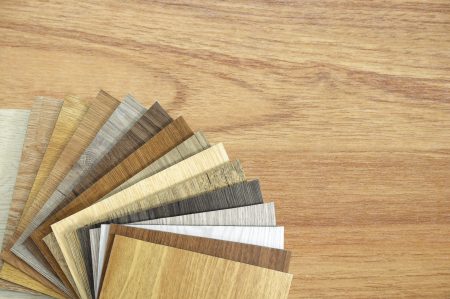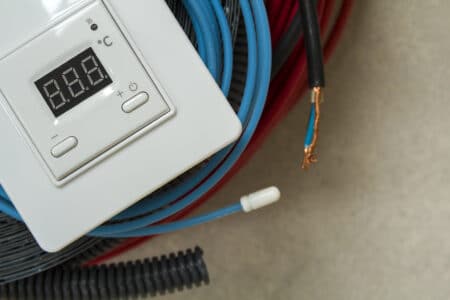New flooring for your property is a significant investment, and naturally, you want to consider all the aspects before having it installed. In today’s guide, we look at cork flooring pros vs. cons to decide if this is the type of flooring you would want in your home.
So without further ado, let’s dive in.
What is Cork Flooring?
The material cork is produced from the bark of the cork oak tree and is harvested from trees planted for commercial purposes only. For flooring products, the material is grounded, compressed, and formed into sheets bonded with resins.
Cork flooring has been around for decades, but it saw the limelight recently because it is a ‘green’ renewable resource. This means that you can use it without any guilt of damaging the trees. And very little waste goes into its making as well.
Cork Flooring Cost
Costs for cork floor tiles or planks vary and range from $2 to $12 per square foot. The price is dependent on the thickness of the flooring and the quality of the finish.
When it comes to installation, the professional installation costs are reasonably economical and slightly less than hardwood flooring. But unlike other flooring options, the installation of cork is a pretty easy DIY project, and many homeowners save on professional installation costs and perform the task by themselves.
Cork Flooring Maintenance
Is cork flooring cleaner than other materials? Is one of the main questions we get asked about this type of flooring?
When installed properly, cork flooring is relatively simple to care of and requires regular sweeping and damp mops for maintenance. However, it would help if you wiped away any spills immediately to avoid staining.
You may also need to seal coat the flooring on a periodical basis to waterproof cork flooring and provide optimal protection against water stains and damage.
But do remember that no sealer is perfect, and if the room becomes flooded with water, the flooring can warp and discolour.
Challenges and Maintenance in High Humidity and Sunlight
High humidity is also a problem with cork flooring and can cause the surface to curl or plump.
Discoloration can also occur due to direct sunlight. If your room gets direct sunlight beam, expect your flooring to take on a different hue than its surroundings.
Luckily, cork floors can be refinished periodically, so just like hardwood flooring, you can give your room a fresh new look from time to time. This can also be done several times a year to maintain the look. However, make sure the surface cork layer is not very thin, or it won’t withstand the rigorous sanding.
Cork Flooring Pros vs. Cons
First, let’s look at the benefits of installing cork floors in your home.
Cork Flooring is Hypoallergenic
If you suffer from allergies and asthma and are looking for an alternative to an allergen-collecting carpet – cork is a great option.
It is naturally mould, mildew, and insect resistant, thanks to the waxy substance it inherits called the suberin. Plus, it contains anti-microbial properties, which means it can ward off dust, danders, and dust mites better than any other type of flooring option.
Cork is Insulating
Cork flooring is naturally insulating, and unlike other flooring types – it doesn’t allow heat to escape.
This is because cork boasts a unique honeycomb structure that is filled with millions of air-filled cells. These cells provide insulation against both heat and cold throughout the year.
Cork Provides Comfort
Cork flooring is easy on the foot and is pleasant to touch and walk on.
The same cells that provide cork with insulation give the flooring a sponge-like feeling and comfort when walking.
Additionally, if you suffer from leg pain, the flooring can relieve pressure from your joints as you walk and can make standing for long periods bearable on your spine.
Cork is Quiet
Sound plays a large role in maintaining the comfort level of your home. If your house is not insulated properly, even the slightest noise can sound like a cattle’s concert.
However, cork material is a natural sound dampener and traps sound to a comfortable level. Thanks to its thick spongy composition, cork absorbs vibrations and footfalls better than other flooring material.
Cork is Sustainable
An environment-friendly process is followed to extract the cork material from the bark of the cork oak tree. The first harvest usually occurs when the tree is approximately 20 years old, with subsequent removal every nine years and up to 15 times its natural lifecycle – which is generally 250 years.
This means that the tree is continually regenerating bark and providing support to the surrounding forest communities.
Easy to Install
As we mentioned above, cork floors are easy to install. They are available in floating panels that can be easily installed using a tongue-and-groove installation system. Because of this, many homeowners choose to install them by themselves rather than hiring a professional installer.
Cork is Affordable
While cork floors are easy on the pockets in terms of cost and installation – they also offer added value, such as reduced utility bills due to the insulation properties.
Easy to Maintain
As far as everyday maintenance goes, the cork floors are easy to maintain and conveniently cleaned using everyday house cleaning supplies.
Cork Flooring Disadvantages
Just like any flooring option, cork flooring types also have their set of disadvantages. Some of them to consider include:
Susceptible to dents and scratches
Similar to hardwood, cork can dent and scratch easily. Although it’s dense enough to withstand heavy traffic and weight, cork material is highly susceptible to pet scratches, heel dents, and heavy furniture.
To avoid this issue with your flooring, we recommend using floor protectors. You can also move around furniture now and then to allow the dents to spring back from compression damage.
As with pets, make sure to keep your pets’ nails trimmed and wipe off any accident as quickly as possible.
Climate Consideration
Just like dents, climate consideration is essential when installing cork flooring in your home, as extreme temperature changes can damage the cork floor. Just like hardwood, the cork will expand and contract according to the moisture level in your home.
Fades Due to Sunlight
Again, the drawback of core flooring is that it will fade when given enhanced exposure to sunlight. To avoid this issue, we recommend using adequate blinds and curtains to block the sunlight
Stained Floors are Uneven
Understand that cork flooring will not look completely uniform, and most professionals will have a tough time applying an even finish.
If color variations give you any uneasiness, go for pre-stained products that are finished in the factory. And if you choose to have your flooring stained on-site – hire a professional with years of experience.
Is Cork Flooring Waterproof?
While cork floors are not waterproof, they are water-resistant, and a polyurethane topcoat will protect the floors from minor spills.
When it comes to cork bathroom flooring, we recommend not using floating cork flooring. Instead, go for a solid, glue-down option that may be tricky to install but keeps your bathroom and laundry rooms intact despite high moisture levels.
Is Cork Flooring the Right Option for Your Home?
Now that you know all the cork flooring pros vs. cons, it’s up to you to decide whether the flooring is the right option for you. Consider each aspect carefully, along with your lifestyle, and make a decision accordingly. Good luck!




